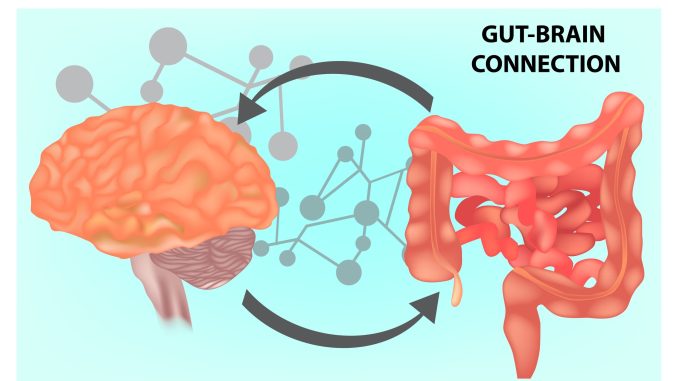
In recent years, the phrase “gut health is your second brain” has gained traction not only in medical circles but also in business and wellness communities. It’s more than a catchy metaphor—it reflects a growing body of research that reveals the profound connection between our digestive system and our cognitive and emotional well-being. For professionals navigating high-stress environments, understanding this relationship isn’t just a matter of personal health; it’s a strategic insight into performance, resilience, and long-term productivity.
The gut, or more precisely the gastrointestinal tract, is home to an intricate network of neurons known as the enteric nervous system. This system contains over 100 million nerve cells, more than the spinal cord, and operates independently of the brain while constantly communicating with it. This bidirectional communication is facilitated by the vagus nerve, a major conduit that links the brainstem to the abdomen. What’s fascinating is that this connection allows the gut to influence mood, decision-making, and even memory. It’s why a stressful presentation can trigger stomach cramps or why anxiety can lead to digestive discomfort. The gut doesn’t just respond to the brain—it speaks to it.
One of the most compelling aspects of this relationship is the role of the gut microbiome. This vast community of bacteria, fungi, and other microorganisms plays a critical role in regulating digestion, immune function, and neurotransmitter production. For example, certain gut bacteria produce serotonin, a neurotransmitter commonly associated with mood regulation. In fact, nearly 90 percent of the body’s serotonin is synthesized in the gut. When the microbiome is balanced, it supports emotional stability and cognitive clarity. When it’s disrupted—by poor diet, stress, or antibiotics—it can contribute to mood disorders, brain fog, and even impaired judgment. For business leaders and entrepreneurs, this means that gut health isn’t just a wellness trend; it’s a foundation for mental acuity and emotional resilience.
Consider the implications in a corporate setting. A team under chronic stress may experience not only burnout but also digestive issues that compound their fatigue and reduce their ability to focus. If the workplace culture encourages long hours, poor eating habits, and minimal movement, the gut-brain axis suffers. This isn’t just a health concern—it’s a performance issue. Companies that recognize the importance of gut health can take proactive steps to support their employees, such as offering nutritious meals, promoting regular breaks, and fostering a culture of psychological safety. These interventions may seem peripheral, but they directly impact cognitive function and emotional regulation, both of which are essential for effective collaboration and innovation.
The connection between gut health and mental performance also extends to leadership. Decision-making, especially under pressure, requires clarity, confidence, and emotional balance. Leaders who neglect their gut health may find themselves more reactive, less focused, and prone to impulsive choices. On the other hand, those who prioritize nutrition, stress management, and sleep often report greater mental stamina and emotional intelligence. This isn’t anecdotal—it’s supported by emerging research in neurogastroenterology and psychobiotics, a field that explores how gut bacteria influence psychological states. In essence, the gut serves as a regulatory hub, helping leaders maintain equilibrium in the face of complexity.
From a strategic standpoint, the gut-brain connection also opens new avenues for product development and consumer engagement. Wellness brands, food companies, and even tech firms are exploring how to integrate gut-friendly solutions into their offerings. Whether it’s probiotic supplements, fermented foods, or apps that track digestive health, the market is responding to a growing demand for holistic well-being. Businesses that understand the science behind gut health can craft more authentic narratives and build trust with consumers who are increasingly informed and discerning. It’s not enough to slap a “healthy” label on a product—customers want to know how it supports their mental and emotional vitality.
There’s also a cultural shift underway. In the past, digestive health was often discussed in clinical or embarrassing terms. Today, it’s part of mainstream wellness conversations, and that shift matters. When gut health is framed as integral to brain function, it gains legitimacy and relevance. This reframing allows professionals to take their digestive well-being seriously without stigma, and it encourages organizations to invest in supportive environments. The result is a more humane, effective workplace—one where people are empowered to care for their whole selves.
Ultimately, recognizing the gut as a second brain is about embracing complexity. It’s about understanding that our bodies are not compartmentalized systems but interconnected networks. For business professionals, this insight offers a powerful lens through which to view health, performance, and leadership. It challenges us to move beyond surface-level wellness initiatives and toward deeper, more integrated approaches. Whether you’re leading a team, building a brand, or simply trying to stay sharp in a demanding role, your gut health is not a side concern—it’s central. And by treating it as such, you not only enhance your own capacity but also contribute to a culture of vitality and resilience.